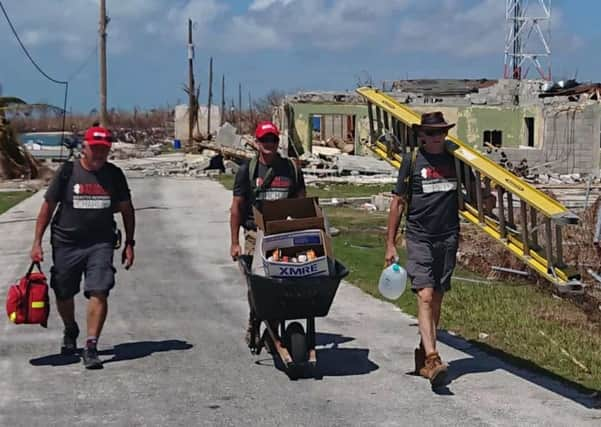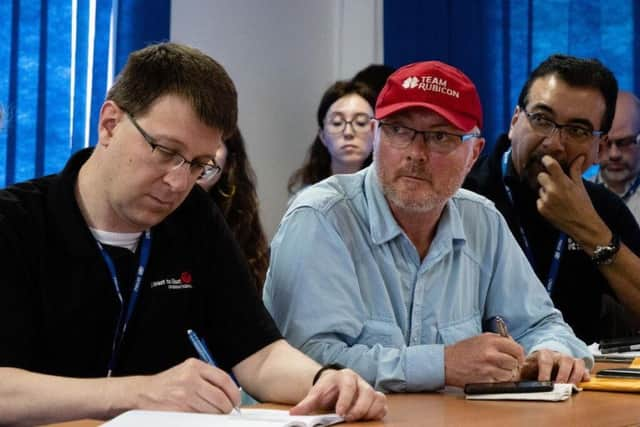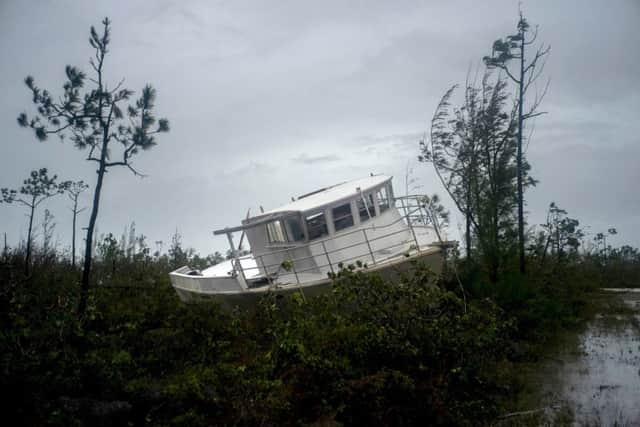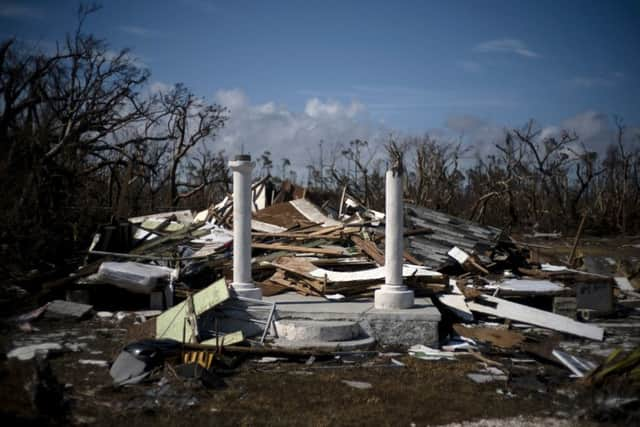Meet the Yorkshireman who used his military skills to help victims of devastating Hurricane Dorian


“It was like a nuclear bomb had gone off,” says Tim Brear of the scene of destruction which greeted him and other charity volunteers in the Bahamas following Hurricane Dorian last month.
“There were wrecked cars next to concrete platforms where the bases of a whole house had once stood. It was absolutely devastating.”


Advertisement
Hide AdAdvertisement
Hide AdBrear, a father-of-two from Ilkley who was a former infantry officer in the Duke of Wellington Regiment before going on to a successful business career in financial services, was part of a small team for a disaster response charity called Team Rubicon. The organisation is largely made up of former military veterans who use the organisational and endurance skills they have gained from the armed forces to ensure aid gets to those who need it most as soon as possible.
Brear, who sold his stake in Harrogate-based financial services firm bdb in December 2017, has travelled to Sierra Leone and Mozambique with the charity in recent years and was sent out last months for two weeks to Grand Bahama, one of the areas worst affected by Hurricane Dorian.
Dorian was the most intense tropical cyclone on record to strike the Bahamas and caused catastrophic damage in early September, with at least 61 people killed and hundreds still missing, while 70,000 people were left homeless. The intense storm remained stationary over Grand Bahama for more than a day, with winds reaching 185mph and towns being flooded by storm surges, metres above normal sea levels.
Brear, who was based in the city of Freeport and assisted with operational logistics by working alongside local government officials and the US Coastguard, says it was difficult to take in the scale of the tragedy they were dealing with.


Advertisement
Hide AdAdvertisement
Hide Ad“What I found humbling was some of the people who lost everything were people in government and administration jobs,” he says.
“They were working for everybody during working hours and only dealing with their own disasters in their own time. I was working with one person who said ‘my house was behind the police station and it was pink’. When I went past, all that was there was a pile of pink bricks.
“There was amazing community spirit from people who were helping each other even though their own lives were in crisis. The Bahamian people were all hugely open and so generous with us.”
Team Rubicon’s work in the Bahamas helped more than 68,000 people, delivering over 140 tonnes of aid and provided things like water desalination units to ensure there was a clean water supply and setting up power generations to provide a basic electricity supply.


Advertisement
Hide AdAdvertisement
Hide AdThe Team Rubicon volunteers headed home after two weeks as a result of their funding for their mission coming to an end but have now secured financing to send two people to the Bahamas for six months to assist with the longer-term recovery efforts.
Now back in Yorkshire, Brear says it was difficult - but necessary - to put his emotions to one side during his time in the Bahamas.
“On a daily basis, that was quite difficult. To be effective, you have to remain detached and unemotional. That is really quite difficult. At the end of every day I would be returning to a bed in an area of Freeport that wasn’t affected. Every morning I would get up and see a sunrise in a beautiful place knowing I was going to step out into personal tragedies.
“With Team Rubicon because we are almost all ex-military there is a black humour that helps you cope with being in these situations and keeps your spirits up.”
For more information about how to support the charity, visit www.teamrubiconuk.org.